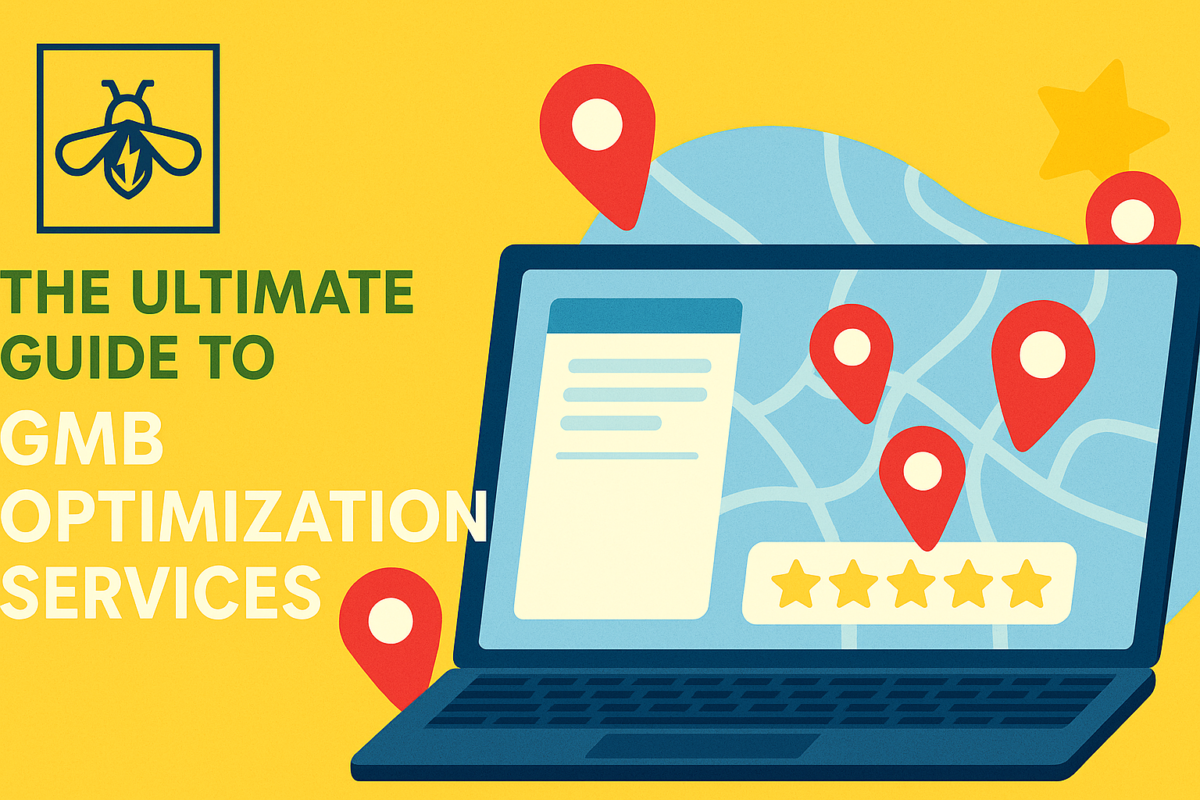
AI-powered lead generation is changing how businesses attract potential customers. With AI-powered lead generation, businesses can now identify, score, and engage with potential clients more effectively, leading to improved sales outcomes and business growth. Here’s a quick look at the benefits:
- Efficiency: Automate repetitive tasks and save time.
- Accuracy: Use data-driven insights to target the right prospects.
- Personalization: Tailor messages to specific audience needs.
- Scale: Manage larger volumes of leads seamlessly.
As artificial intelligence continues to evolve, so does its role in generating leads. It turns complex data into actionable insights, making marketing campaigns more precise and effective. Implementing AI is not about replacing human insights but supercharging them to reach revenue goals faster.
I’m Joshua Fleming, a leading figure in digital marketing, skilled at blending cutting-edge technology with strategic planning to drive business success. With a focus on AI-powered lead generation, my career has been dedicated to helping businesses of all sizes boost their sales pipelines and achieve unprecedented growth.

Understanding AI-Powered Lead Generation
AI-powered lead generation is a game-changer for businesses looking to streamline their marketing efforts. At its core, it uses AI algorithms to sift through vast amounts of data, identifying patterns and predicting outcomes with uncanny accuracy. These algorithms are the backbone of AI technology, allowing businesses to make informed decisions about which leads to pursue.
AI Algorithms
AI algorithms are like the brain of your lead generation efforts. They analyze data from various sources, such as website interactions and social media activity, to identify potential leads. By processing this data, AI can determine which prospects are likely to convert into paying customers. This means your sales team can focus their energy on high-quality leads, saving time and resources.
Predictive Analytics
Predictive analytics is a powerful tool in the AI arsenal. It uses historical data to forecast future outcomes. For instance, by analyzing past customer behavior, AI can predict which leads are more likely to make a purchase. This helps businesses prioritize their efforts and tailor their marketing strategies to meet the needs of these potential customers.

Machine Learning
Machine learning takes AI-powered lead generation to the next level. It enables systems to learn and improve over time without explicit programming. As more data is collected, machine learning algorithms become more accurate in predicting lead behavior. This continuous improvement ensures that your lead generation strategy remains effective and relevant in a constantly changing market.
Incorporating machine learning into your lead generation strategy means your business can adapt to new trends and customer preferences quickly. This adaptability is crucial in today’s digital landscape.
With AI-powered lead generation, businesses can open up new levels of efficiency and precision. By leveraging AI algorithms, predictive analytics, and machine learning, companies can transform their approach to finding and nurturing leads, ultimately boosting their sales and growth potential.
Next, we’ll explore the top strategies for implementing AI in your lead generation efforts, ensuring you get the most out of this innovative technology.
Top 10 Strategies for AI-Powered Lead Generation
Use Existing Assets
Your business likely already has AI-powered tools that can be leveraged for lead generation. Chatbots and virtual assistants are a great example. These tools can engage with potential customers on your website, answering questions and guiding them through your offerings. By doing so, they not only capture leads but also qualify them based on their interactions.

Create Buyer Profiles
Creating detailed buyer personas is essential for any successful marketing strategy. AI can help refine these personas by analyzing customer data, such as browsing history and purchase behavior. This data enables you to tailor your marketing messages to specific customer segments, enhancing personalization. By understanding your audience better, you can craft personalized content that resonates with them, increasing the likelihood of conversion.
Score Leads Effectively
Predictive lead scoring is a game-changer for prioritizing leads. AI algorithms sift through data to evaluate which leads are most likely to convert. This means your sales team can focus their efforts on high-potential prospects, optimizing both time and resources. AI tools can analyze email outreach, social media interactions, and website visits to assign scores, ensuring that your team always knows where to direct their attention.
Employ Chatbots
AI-powered chatbots are revolutionizing customer communication. These virtual assistants are available 24/7, providing instant responses to customer inquiries. They can handle everything from basic queries to guiding users through complex purchasing decisions. This constant availability ensures that potential leads are never left waiting, enhancing customer satisfaction and increasing the chances of conversion.

Provide Personalized Service
Personalization is key to connecting with customers on a deeper level. AI can analyze extensive customer behavior data to offer custom recommendations. For instance, recommendation engines, like those used by OTT platforms, suggest content based on a user’s watch history and preferences. By implementing similar strategies, businesses can provide personalized product or service recommendations, improving customer engagement and loyalty.
In the next section, we’ll dig into how to implement AI in your lead generation strategy effectively, focusing on data centralization, selecting the right AI tools, and integrating them into your marketing technology stack.
Implementing AI in Lead Generation
To effectively incorporate AI-powered lead generation into your business, start by focusing on three key areas: data centralization, AI tools selection, and martech integration.
Data Centralization
Centralizing your data is crucial for successful AI implementation. By consolidating customer data from various sources like CRM systems, website analytics, and social media, you create a unified database. This centralized data allows AI algorithms to analyze patterns more accurately and generate actionable insights. A single source of truth ensures consistency and reliability in your AI-driven strategies, enabling better decision-making and enhancing lead quality.
AI Tools Selection
Choosing the right AI tools can significantly impact your lead generation efforts. Consider tools that align with your business objectives and integrate seamlessly with your existing systems. For instance, tools like AI Lead Scoring can help rank leads based on their potential value, while AI chatbots engage visitors in real-time. Evaluate each tool’s capabilities, ease of use, and scalability to ensure it meets your needs. The goal is to improve efficiency and accuracy in identifying and nurturing leads.
Martech Integration
Integrating AI tools into your marketing technology stack is essential for a streamlined workflow. Ensure that your chosen AI solutions are compatible with your existing martech systems, such as CRM platforms and marketing automation tools. This integration allows for seamless data flow between systems, reducing manual effort and minimizing errors. By automating tasks like data entry and lead qualification, your team can focus on building relationships and closing deals.
In the next section, we’ll explore the benefits and challenges of AI-powered lead generation, highlighting how these technologies can improve efficiency and personalization while addressing potential data quality and privacy concerns.
Benefits and Challenges of AI-Powered Lead Generation
AI-powered lead generation offers a host of benefits, but it also comes with its own set of challenges. Let’s explore both sides of the coin.
Benefits
Efficiency
AI dramatically boosts efficiency in lead generation. By automating repetitive tasks like data entry and lead scoring, AI frees up your team to focus on more strategic activities. AI tools can analyze vast datasets quickly, identifying high-potential leads faster than any human could. This means your sales team spends less time hunting and more time selling.
Personalization
AI excels at personalization, a key factor in successful marketing today. By analyzing customer behavior data, AI can tailor messages and offers to individual preferences. This kind of personalization can significantly improve engagement and conversion rates. For example, AI can recommend products based on a customer’s previous interactions, similar to how streaming services suggest content.
Challenges
AI’s effectiveness hinges on the quality of the data it analyzes. Poor data can lead to inaccurate insights and misguided strategies. Data silos, inconsistent data entry, and outdated information can all degrade AI performance. To mitigate this, ensure your data is clean, complete, and centralized, providing a strong foundation for AI-driven insights.
Privacy Regulations
With the rise of data privacy laws like GDPR and CCPA, using personal data for AI-powered lead generation requires careful navigation. These regulations demand transparency and accountability, so businesses must ensure compliance to avoid hefty fines. Balancing data privacy with the need for personalization is a delicate act. It’s crucial to build trust with customers by being transparent about data usage and offering opt-in choices.
In the next section, we’ll address some frequently asked questions about AI-powered lead generation, including how AI can automate lead generation tasks and qualify leads effectively.
Frequently Asked Questions about AI-Powered Lead Generation
Can I use AI to generate leads?
Absolutely! AI-powered lead generation is a game-changer for businesses. AI can automate email marketing, making it a breeze to send personalized emails to thousands of prospects. These emails aren’t just generic blasts—they’re custom to each recipient’s preferences and behaviors, increasing the chances of engagement.
AI tools can analyze browsing histories and past interactions to craft messages that resonate. This means more meaningful connections and, ultimately, more leads. By automating these tasks, your team can focus on strategy rather than getting bogged down in the details.
How to qualify leads using AI?
Qualifying leads is crucial, and AI can do it efficiently. AI uses lead scoring models to evaluate potential customers based on predefined criteria, such as their interactions with your brand or their fit with your ideal company profiles.
These models assign scores to leads, helping you prioritize who to contact first. AI can also enrich lead profiles with additional data, offering insights into a lead’s readiness to buy. This way, your sales team targets high-value prospects, boosting conversion rates.
Can lead generation be automated?
Yes, lead generation can be automated, and AI plays a pivotal role in this. Digital tools powered by AI can handle time-consuming tasks like data entry, lead scoring, and even initial outreach.
For instance, chatbots can engage with website visitors 24/7, capturing interest and gathering contact information. AI-driven tools can also segment leads and send them personalized content at the optimal time. This level of automation not only saves time but also ensures that no lead falls through the cracks, maximizing your lead generation efforts.
In the following section, we’ll explore how businesses can implement AI in their lead generation strategies effectively.
Conclusion
As we wrap up our exploration of AI-powered lead generation, it’s clear that AI technology is reshaping the way businesses approach lead generation and sales pipeline efficiency. At Local Digital Buzz, we harness the power of AI to streamline and improve every step of the lead generation process, ensuring our clients stay ahead in the competitive market.
Our approach combines cutting-edge AI tools with human expertise, creating a seamless experience that drives real results. By centralizing data and integrating AI into existing systems, we help businesses identify, nurture, and convert leads with unprecedented precision. This not only boosts sales efficiency but also allows teams to focus on building relationships rather than getting lost in manual tasks.
AI’s ability to personalize interactions and predict customer behavior means that your marketing efforts are always targeted and relevant. This level of personalization increases engagement and conversion rates, making your sales pipeline more efficient than ever before.
Local Digital Buzz is committed to leveraging AI for your success. Our flexible, subscription-based packages and performance-based marketing solutions ensure that businesses of all sizes can benefit from AI-driven growth. Whether you’re a small business looking to generate buzz or a larger enterprise seeking sustainable growth, our custom solutions are designed to meet your unique needs.
Ready to revolutionize your lead generation strategy? Explore our virtual assistant services to see how AI can transform your business. Let’s work together to create an impactful, results-driven online presence that propels your business forward.

















